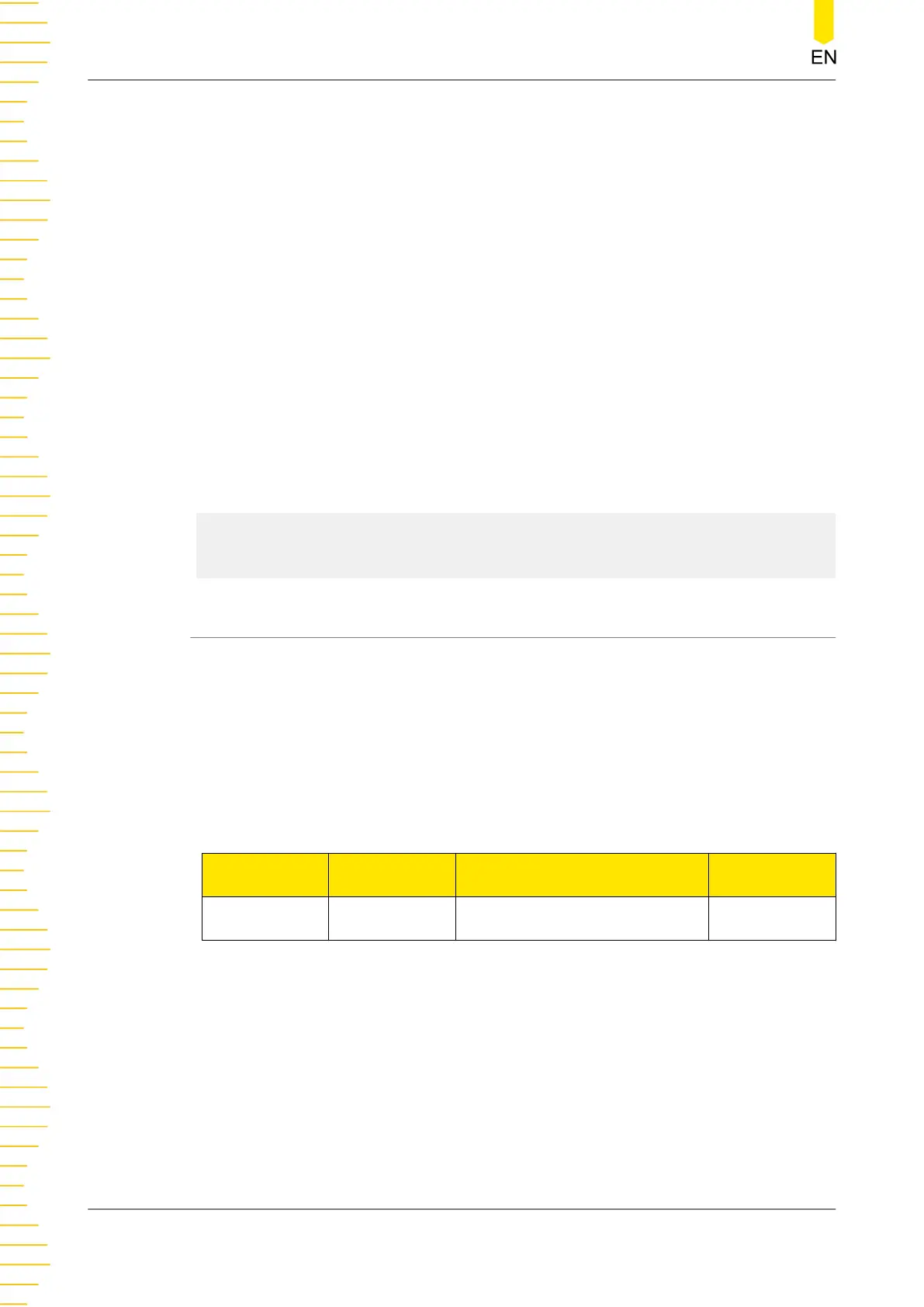Remarks
• When OCP is enabled, the output is disabled automatically if the actual output
current reaches the OCP level currently set. You can send
[:SOURce[<n>]]:CURRent:PROTection:TRIPped?
to query whether an OCP event
occurred on the specified channel.
• If [:SOURce[<n>]] or [<n>] is omitted, the command sets the corresponding
parameter of the channel currently selected.
• You can also send
:OUTPut:OCP[:STATe]
to enable or disable the OCP function for
the specified channel.
• You can send
[:SOURce[<n>]]:CURRent:PROTection[:LEVel]
to query the OCP
level for the specified channel.
Return Format
The query returns 0 or 1.
Examples
:CURR:PROT:STAT ON /*Enables the OCP function for the current
channel.*/
:CURR:PROT:STAT? /*Queries the on/off state of the OCP function for
the current channel. The query returns 1.*/
4.9.6 [:SOURce[<n>]]:CURRent:PROTection:TRIPped?
Syntax
[:SOURce[<
n
>]]:CURRent:PROTection:TRIPped?
Description
Queries whether an overcurrent protection (OCP) event occurred on the specified
channel.
Parameter
Name
Type Range Default
<n> Integer {1|2|3} -
Remarks
• The overcurrent protection (OCP) function disables the output automatically
when the actual output current reaches the OCP level.
• If [:SOURce[<n>]] or [<n>] is omitted, the command queries whether an OCP
event occurred on the current channel.
• You can also send
:OUTPut:OCP:ALAR?
or
:OUTPut:OCP:QUES?
to query whether
an OCP event has occurred on the specified channel.
• You can send
[:SOURce[<n>]]:CURRent:PROTection:CLEar
to clear an OCP event
that occurred on the specified channel.
Command System
62
Copyright ©RIGOL TECHNOLOGIES CO., LTD. All rights reserved.

